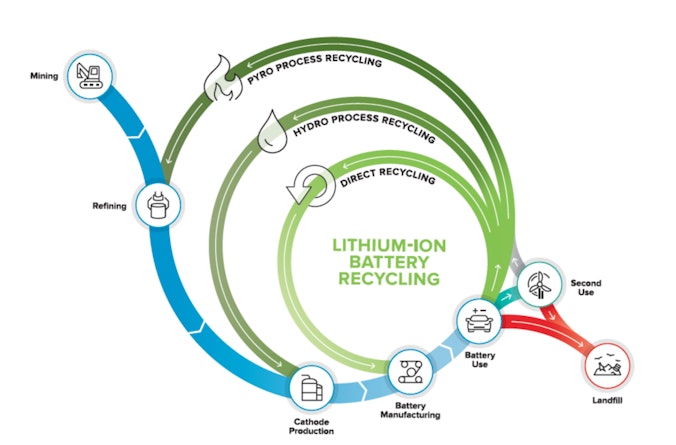Demand for critical raw materials in EVs
This report is part of Today in the Lab – Tomorrow in Energy?
Today in the Lab – Tomorrow in Energy? shines a spotlight on research projects under development in the Technology Collaboration Programmes (TCPs). Learn more about the initiative, read the launch commentary, or explore the TCPs.
Identify critical raw materials needed for batteries, electric motors and other components in electric vehicles
What is the aim of this project?
As electric vehicles are deployed en masse, the supply of critical raw materials used in their manufacture will come under pressure. In addition, there is uncertainty about the speed at which electric vehicle technologies are evolving – affecting the type and quantities of critical raw materials required – and whether alternative technologies or solutions will become available. The CRM4EV project aims to identify critical raw materials needed for batteries, electric motors and other components in electric vehicles, and to promote awareness of their importance and potential impacts on the transition to electric drive.
How could this technology be explained to a high school student?
Electric cars function by plugging into a charge point and taking electricity from the grid. The electricity is stored in rechargeable batteries that power the motor. Several raw materials are considered critical for the production of these batteries, such as lithium, nickel, cobalt and graphite. The availability, supply, and environmental and social impact of these materials poses several challenges.
What is the value of this project for society?
- assesses the impact of mass electric vehicle deployment on the necessary critical raw materials, including availability of those materials
- assesses the significance of electric vehicle battery recycling in light of the principles of the circular economy
- informs “non-expert” stakeholders in a credible way using infographics
- considers policy measures that could enhance efficient resource use
At what stage of development is this project?
The project began in April 2018 and will run for three to four years. A variety of informational materials will be made available throughout the duration of the project, and a final report published. The project team is disseminating the results at conferences and events
What government policies could bring this from the lab to the market?
- acknowledging the impact on raw material demand of the transition to electric vehicles
- recognising the importance of further development of electric vehicle technologies
- acknowledging the importance of battery recycling, including traceability of materials
- promoting co-operation between countries and stakeholders to assure a fast and responsible transition to electric vehicles
- removing barriers to the transport of used batteries

Recycling options bring material back into the production chain at different stages. Graphic courtesy of Argonne National Laboratory.
Partners and funders
Partners
More than 20 agencies, research and industry bodies in the 12 participating countries and active co-operation with many relevant stakeholders.
Funders
This project is funded by the partners
Learn more
About the Technology Collaboration Programme on Hybrid and Electric Vehicles (HEV TCP)
In operation since 1993, the HEV TCP provides a forum for global co-operation on the development and deployment of electric vehicles. It supplies objective information to support decision making, functions as a facilitator for international collaboration in pre-competitive research and demonstration projects, fosters international exchange of information, and promotes projects and programmes for research, development, demonstration and deployment.
Contact: b.witkamp@valuad-expert.com